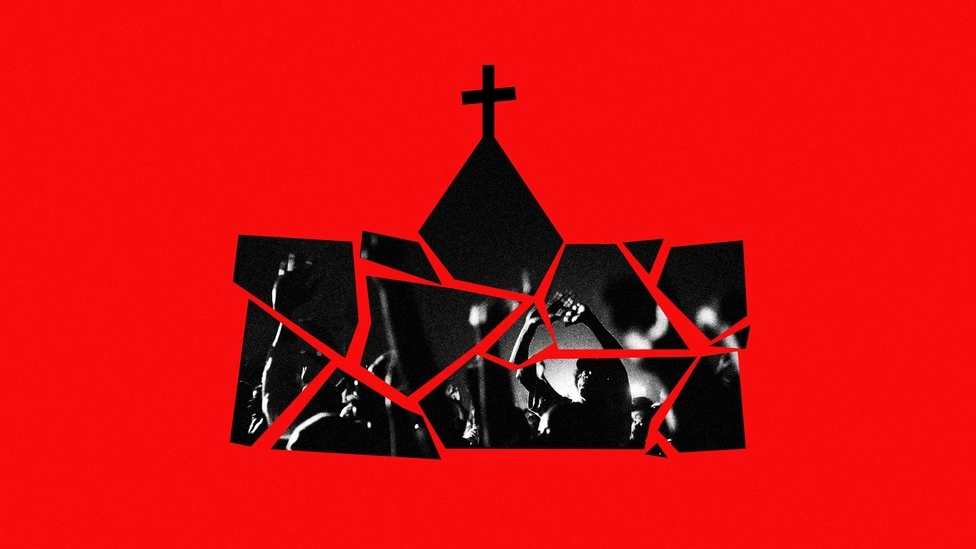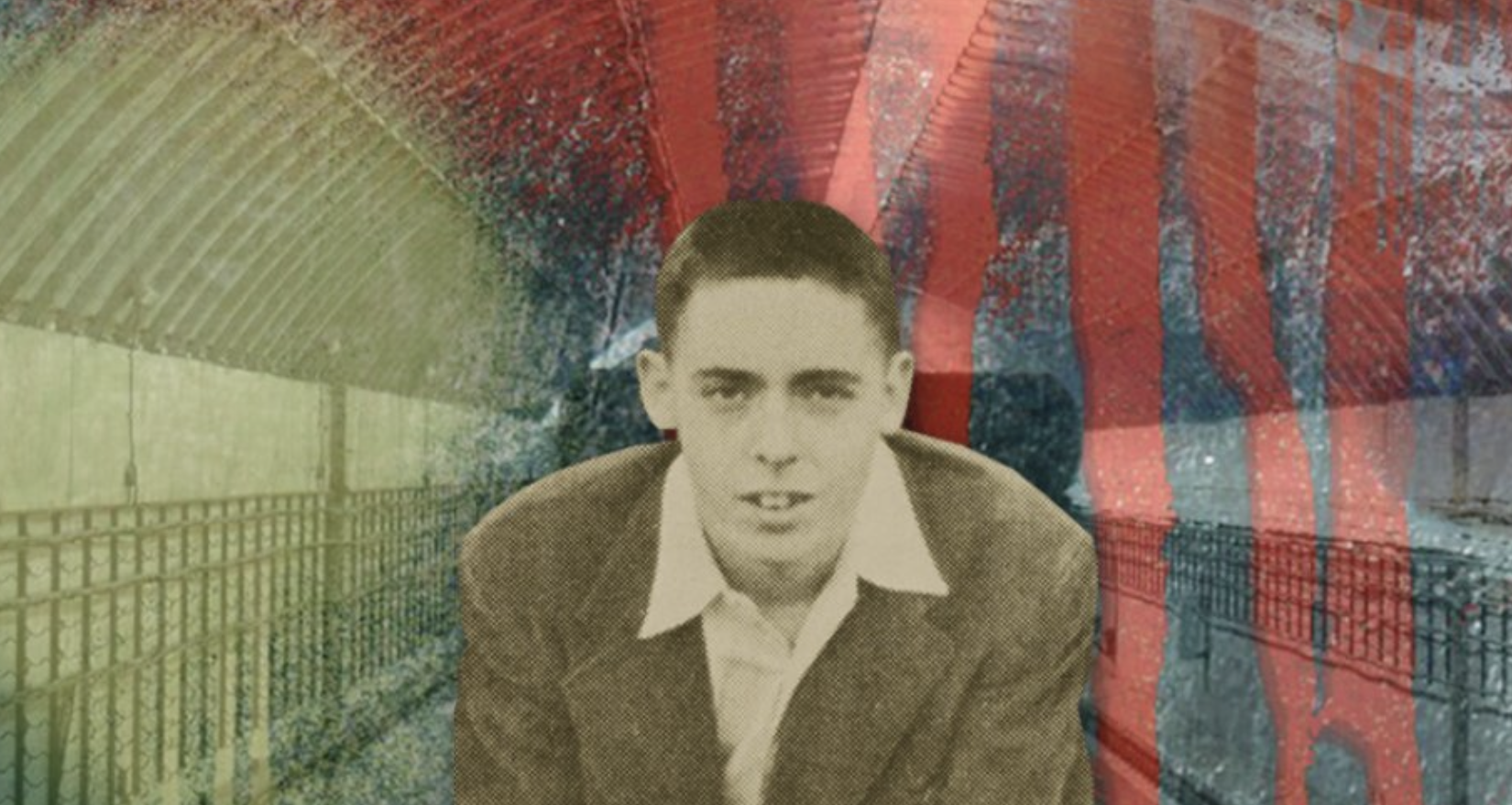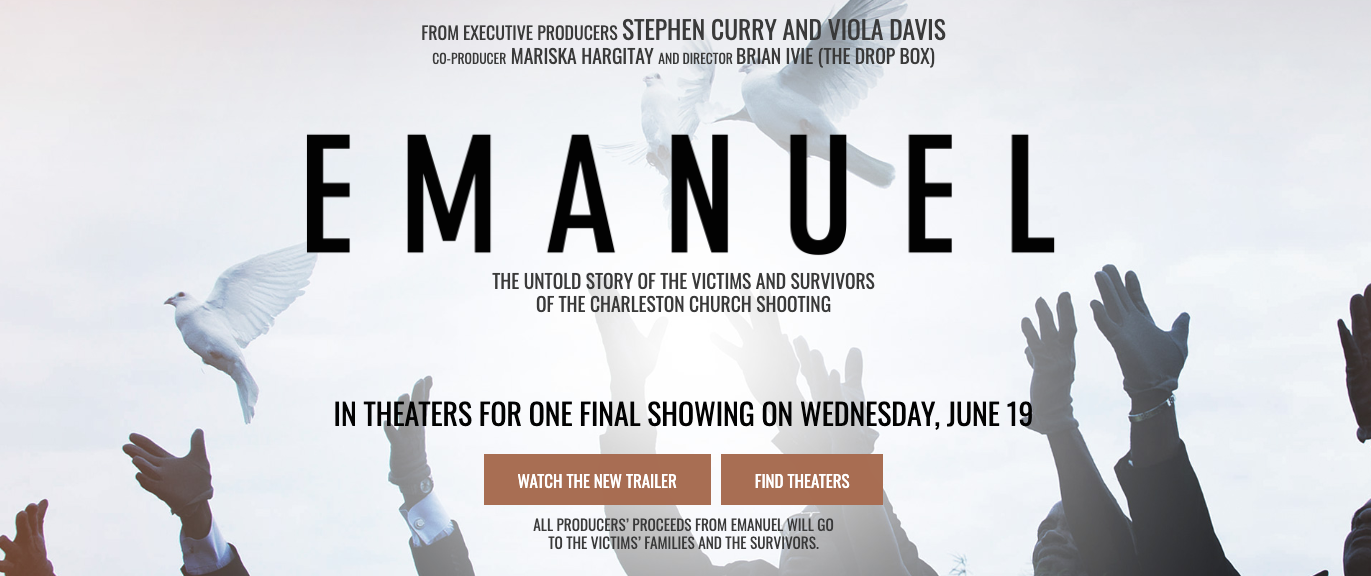“The Weekend Wanderer” is a weekly curated selection of news, stories, resources, and media on the intersection of faith and culture for you to explore through your weekend. Wander through these links however you like and in any order you like. Disclaimer: I do not necessarily agree with all the views expressed within these articles but have found them thought-provoking.
 “Groundbreaking ceremony for Emanuel Nine Memorial set for Saturday morning at Mother Emanuel AME Church” – Ian Kayanja at WACH57: “The groundbreaking ceremony for the Emanuel Nine Memorial will take place Saturday morning. Running from 10 a.m. to 12 p.m., there will be a groundbreaking ceremony for the Emanuel Nine Memorial and a dedication of the Mother Emanuel AME Church’s wholly restored pipe organ. At the ceremony, there will be remarks from Eric S.C. Manning, pastor of the Mother Emanuel A.M.E. Church and co-chair of the Mother Emanuel Memorial Foundation, John Darby, co-chair of the Mother Emanuel Memorial Foundation, and Charleston Mayor John Tecklenburg. The Emanuel Nine Memorial will be located on the grounds of the Mother Emanuel AME Church. It is being built to honor the nine victims and five survivors of the June 17, 2015, racially-based mass shooting. It was one of the largest racially motivated mass murders in recent American history. It will feature a courtyard with two fellowship benches facing each other with high backs that arc up and around like sheltering wings. At the center of the courtyard, the curves of the benches will encircle a marble fountain where the names of the Emanuel Nine are carved around the fountain’s edge. Water will emanate from a cross-shaped source, filling the basin and gently spilling over the names of the nine lives lost. The opening between the benches toward the back of the courtyard will reveal a cross above a simple altar, providing visitors with a quiet place.”
“Groundbreaking ceremony for Emanuel Nine Memorial set for Saturday morning at Mother Emanuel AME Church” – Ian Kayanja at WACH57: “The groundbreaking ceremony for the Emanuel Nine Memorial will take place Saturday morning. Running from 10 a.m. to 12 p.m., there will be a groundbreaking ceremony for the Emanuel Nine Memorial and a dedication of the Mother Emanuel AME Church’s wholly restored pipe organ. At the ceremony, there will be remarks from Eric S.C. Manning, pastor of the Mother Emanuel A.M.E. Church and co-chair of the Mother Emanuel Memorial Foundation, John Darby, co-chair of the Mother Emanuel Memorial Foundation, and Charleston Mayor John Tecklenburg. The Emanuel Nine Memorial will be located on the grounds of the Mother Emanuel AME Church. It is being built to honor the nine victims and five survivors of the June 17, 2015, racially-based mass shooting. It was one of the largest racially motivated mass murders in recent American history. It will feature a courtyard with two fellowship benches facing each other with high backs that arc up and around like sheltering wings. At the center of the courtyard, the curves of the benches will encircle a marble fountain where the names of the Emanuel Nine are carved around the fountain’s edge. Water will emanate from a cross-shaped source, filling the basin and gently spilling over the names of the nine lives lost. The opening between the benches toward the back of the courtyard will reveal a cross above a simple altar, providing visitors with a quiet place.”
 “Families form nonprofits to address gun, school safety after Nashville school shooting” – Kimberlee Kruesie in APNews: “Pausing at the microphone, 6-year-old Noah took a breath and softly stated, ‘I don’t want any guns today or any day in my school.’ His mom, Sarah Shoop Neumann, wiped away tears as she held the young boy. It had been more than four months since a shooter indiscriminately opened fire while Noah was at a private elementary school in Nashville, killing three of his schoolmates and three adults. And Neumann wanted action. Joining a group of families from The Covenant School, Neumann and others on Thursday announced that they had created two nonprofits to not only promote school safety and mental health resources, but also form an action fund to push legislative policy changes that would place certain limits on firearms inside the politically ruby red state of Tennessee.”
“Families form nonprofits to address gun, school safety after Nashville school shooting” – Kimberlee Kruesie in APNews: “Pausing at the microphone, 6-year-old Noah took a breath and softly stated, ‘I don’t want any guns today or any day in my school.’ His mom, Sarah Shoop Neumann, wiped away tears as she held the young boy. It had been more than four months since a shooter indiscriminately opened fire while Noah was at a private elementary school in Nashville, killing three of his schoolmates and three adults. And Neumann wanted action. Joining a group of families from The Covenant School, Neumann and others on Thursday announced that they had created two nonprofits to not only promote school safety and mental health resources, but also form an action fund to push legislative policy changes that would place certain limits on firearms inside the politically ruby red state of Tennessee.”
 “The American Evangelical Church Is in Crisis. There’s Only One Way Out.” – Russell Moore in The Atlantic: “The No. 1 question that younger evangelicals ask me is how to relate to their parents and mentors who want to talk about culture-war politics and internet conspiracy theories instead of prayer or the Bible. These young people are committed to their Christian faith, but they feel despair and cynicism about the Church’s future. Almost none of them even call themselves ‘evangelical’ anymore, now that the label is confused with political categories. ‘Sometimes I feel like I’m crazy,’ one pastor said to me just days ago. ‘Does no one see that the Church is in crisis?’ Indeed it is. I am a conservative evangelical—previously the head of the public-policy wing of the Southern Baptist Convention. For years I dealt with evangelical backlash, including from some of my closest allies and friends, over my opposition to Donald Trump and my views on issues such as racial justice and Church sexual abuse. I hardly thought of myself as a ‘dissident.’ Instead, I believed I was just what I’d always been: a loyal Southern Baptist evangelical trying to apply what I’d learned from children’s Sunday school onward about basic Christian morality and justice.”
“The American Evangelical Church Is in Crisis. There’s Only One Way Out.” – Russell Moore in The Atlantic: “The No. 1 question that younger evangelicals ask me is how to relate to their parents and mentors who want to talk about culture-war politics and internet conspiracy theories instead of prayer or the Bible. These young people are committed to their Christian faith, but they feel despair and cynicism about the Church’s future. Almost none of them even call themselves ‘evangelical’ anymore, now that the label is confused with political categories. ‘Sometimes I feel like I’m crazy,’ one pastor said to me just days ago. ‘Does no one see that the Church is in crisis?’ Indeed it is. I am a conservative evangelical—previously the head of the public-policy wing of the Southern Baptist Convention. For years I dealt with evangelical backlash, including from some of my closest allies and friends, over my opposition to Donald Trump and my views on issues such as racial justice and Church sexual abuse. I hardly thought of myself as a ‘dissident.’ Instead, I believed I was just what I’d always been: a loyal Southern Baptist evangelical trying to apply what I’d learned from children’s Sunday school onward about basic Christian morality and justice.”
 “My Christ” – Christian Wiman in Image: “Of course there can be no such thing. My Christ. Two thousand twenty years of permutations, interpretations, hardcore seminars, and wholesale slaughters. My Christ? Of course there can only be such a thing. He is a universal language that only an individual heart can translate. My Christ. I begin this essay prompted by two things, a passage in C.S. Lewis’s The Great Divorce in which he talks of the necessity of drinking one’s particular shame to the dregs if one would ever be released from it. My shame is Christianity, sometimes. My shame is myself, sometimes. In any event I too often too-timidly sip of both, savoring my spite. The second thing? As I read the Lewis passage, a hawk flew into my vision and landed on a tree limb I can see from my study. How we want the world to speak to us! But some utterance is too intrinsic to be speech. Some luck is love incompletely seen.”
“My Christ” – Christian Wiman in Image: “Of course there can be no such thing. My Christ. Two thousand twenty years of permutations, interpretations, hardcore seminars, and wholesale slaughters. My Christ? Of course there can only be such a thing. He is a universal language that only an individual heart can translate. My Christ. I begin this essay prompted by two things, a passage in C.S. Lewis’s The Great Divorce in which he talks of the necessity of drinking one’s particular shame to the dregs if one would ever be released from it. My shame is Christianity, sometimes. My shame is myself, sometimes. In any event I too often too-timidly sip of both, savoring my spite. The second thing? As I read the Lewis passage, a hawk flew into my vision and landed on a tree limb I can see from my study. How we want the world to speak to us! But some utterance is too intrinsic to be speech. Some luck is love incompletely seen.”
 “Disciple Making in the Family” – You can listen to an audio interview with Dallas Willard on this topic at Conversatio: “A group of ministers in North Carolina, the Pastor’s Disciple-making Network, who put out the Serious Disciple Podcast interviewed Dallas four times on the telephone. Because these are interviews with people in ministry, trying to think through and implement discipleship in their churches, some of their questions are as excellent as are Dallas’s answers.”
“Disciple Making in the Family” – You can listen to an audio interview with Dallas Willard on this topic at Conversatio: “A group of ministers in North Carolina, the Pastor’s Disciple-making Network, who put out the Serious Disciple Podcast interviewed Dallas four times on the telephone. Because these are interviews with people in ministry, trying to think through and implement discipleship in their churches, some of their questions are as excellent as are Dallas’s answers.”
 “The Far Invisible: Thomas Pynchon as America’s Theologian” – Alan Jacobs in The Hedgehog Review: “In 1988, the great Lutheran scholar Robert Jenson published a book called America’s Theologian, conferring that honor on the formidable eighteenth-century Calvinist divine Jonathan Edwards. Jenson did not mean that Edwards is the greatest American theologian, though he probably is, but rather ‘that Edwards’s theology meets precisely the problems and opportunities of specifically American Christianity and of the nation molded thereby, and that it does so with the profundity and inventive élan that belong only to the very greatest thinkers.’ Quite clearly, a very different America has emerged in the decades since Jenson’s book was published, and the best theologian of our America is by profession neither a theologian nor a pastor. The great theologian of our America, I propose, is the novelist Thomas Pynchon. This may seem a peculiar claim, and not just because Pynchon is a writer of fiction. No evidence indicates that Pynchon is a Christian, or indeed a religious believer of any kind (though he may have been taken to church as a child).”
“The Far Invisible: Thomas Pynchon as America’s Theologian” – Alan Jacobs in The Hedgehog Review: “In 1988, the great Lutheran scholar Robert Jenson published a book called America’s Theologian, conferring that honor on the formidable eighteenth-century Calvinist divine Jonathan Edwards. Jenson did not mean that Edwards is the greatest American theologian, though he probably is, but rather ‘that Edwards’s theology meets precisely the problems and opportunities of specifically American Christianity and of the nation molded thereby, and that it does so with the profundity and inventive élan that belong only to the very greatest thinkers.’ Quite clearly, a very different America has emerged in the decades since Jenson’s book was published, and the best theologian of our America is by profession neither a theologian nor a pastor. The great theologian of our America, I propose, is the novelist Thomas Pynchon. This may seem a peculiar claim, and not just because Pynchon is a writer of fiction. No evidence indicates that Pynchon is a Christian, or indeed a religious believer of any kind (though he may have been taken to church as a child).”
Music: Jon Batiste, “Drink Water” ft. Jon Bellion, Fireboy DML
